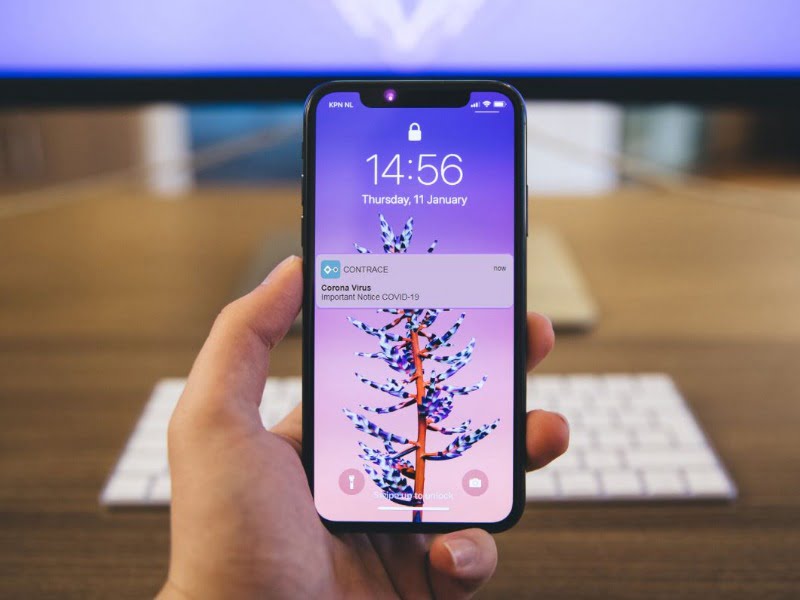Not enough people will download the government’s COVID-19 contact tracing app unless it adopts a “total privacy” model, the developer of a local version of the technology has warned.
Former NSW Health data quality manager Jonathan Armstrong and a core team of others who also worked on the award-winning NSW government digital project PTIPS have launched a prototype for ConTrace, an app which traces “proximity events” between users and notifies them if another is diagnosed with COVID-19.
The launch of the prototype last week came as the Australian government confirmed it is building its own contact tracing app based on the model provided by Singapore with its TraceTogether app. It plans to launch the initiative within weeks.

But Mr Armstrong said Australians will only use the voluntary app if they have total trust in it, and this will only be achieved with a model such as ConTrace, which does not require any personal information, such as a phone number, to be used, in contrast to the Singapore model.
“I don’t really understand why the government is going straight to the Singapore option and ignoring any local privacy-protecting apps available, like ConTrace,” Mr Armstrong told InnovationAus.
The government hopes a minimum of 40 per cent of Australians will use its app, despite only 20 per cent of Singaporeans currently using TraceTogether. This huge uptake would only be possible if Australians are assured that the app protects their privacy, Mr Armstrong said.
“Surely the aim of the game is to save as many lives as possible and to use contact tracing to contain the spread of COVID-19. This requires both swift and extensive uptake of the contact tracing app, which comes down to trust,” he said.
“The 20 per cent uptake of TraceTogether in Singapore speaks for itself. I believe that Australians need a solution they can trust. Our app is Australian-developed, already has a working prototype that is ready for demo and was designed from the ground up to be privacy-protecting and anonymous.
“We’re a proven Australian-development team with a track record of delivery to government, and we’ve got a working prototype that incorporates privacy by design. Where are we on the agenda? We’re really confused about what’s going on and why we’re so bullish on the Singapore app.”
The ConTrace app uses a phone’s Bluetooth technology to log “proximity events” with other users.
These events are encrypted and stored on the phone for 21 days before being deleted. If another user is diagnosed with COVID-19, the user will be notified if they have been in close contact with them in the last three weeks.
ConTrace has now been successfully tested with a prototype version launched. There are plans for a wider release in May, with the team behind it now looking for funding to expedite this process.
Instead of registering a mobile number, users are given an anonymised ID when the app is downloaded, and this is used when proximity events are recorded. If a close contact with someone diagnosed with COVID-19 is recorded, the user is not informed of the exact time or location.
Mr Armstrong said the Digital Transformation Agency, which is working on the government’s app, is aware of ConTrace and how it works, but the team has not entered into any discussions with the government.
“Sooner or later the self-isolation laws are going to be relaxed, and when that happens, contact tracing apps like ConTrace will be one of the crucial tools in our arsenal to prevent a resurgence in the spread of COVID-19 through the population,” Mr Armstrong said.
“We urge industry and the Australian government to consider and support Australian-developed, privacy-guaranteed solutions such as ConTrace, so that uptake by Australian consumers is swift and unimpeded by trust or security concerns.”
There are plans to also incorporate “unfalsifiable immunity certificates” into the app, along with live chat support for virtual health consultations.
The announcement from Apple and Google that they will be teaming up to provide a framework for the development of contact tracing apps using Bluetooth across iOS and Android devices is welcome but there should be concern about placing so much trust in these tech giants, Mr Armstrong said.
“It still remains the case that we have nothing to gain commercially by combining contact tracing data with other personal data, whereas the potential gains for these corporations would be significant, to say the least. Ultimately this is a trust issue,” he said.
“As a society, we have already slid down the path of surrendering our privacy to large technology corporations. Through the terms and conditions that we all click ‘accept’ to, without reading, we’ve ceded a great wealth of our personal and private data, which is now mined by corporations and used to shadow our consumer and other behaviour.”
“I think the COVID-19 crisis has brought us to a crossroads and is forcing us to stop and think before we take this deeper plunge.”
The team behind ConTrace includes Mr Armstrong, PTIPS creator Dr Ghassan Jarjees, former PTIPS development team lead Louis Berghold and PTIPS senior developer Graham Webber.
Do you know more? Contact James Riley via Email.


I empathise with Stuart Kidd. This would’ve been a good opportunity for innovation in the App-space for a Local SME.
I tend to think that the Govt. chose the path with less risk and cycle-time. The Australian version of “TraceTogether” is deployment in another environment. Hence, it requires just “Beta-testing” only; mostly confined to configuration (which should include performance) as opposed to Regression or UAT. This would pave the way towards a shorter SDLC.
We have recently developed a self-isolation tracking app. Obviously like ConTrace, it cannot be launched on any app stores without a recognised government developer account. Through us reaching out to government departments it has been a sad sight for support of Australian tech in the lack of responses and engagement we have received.